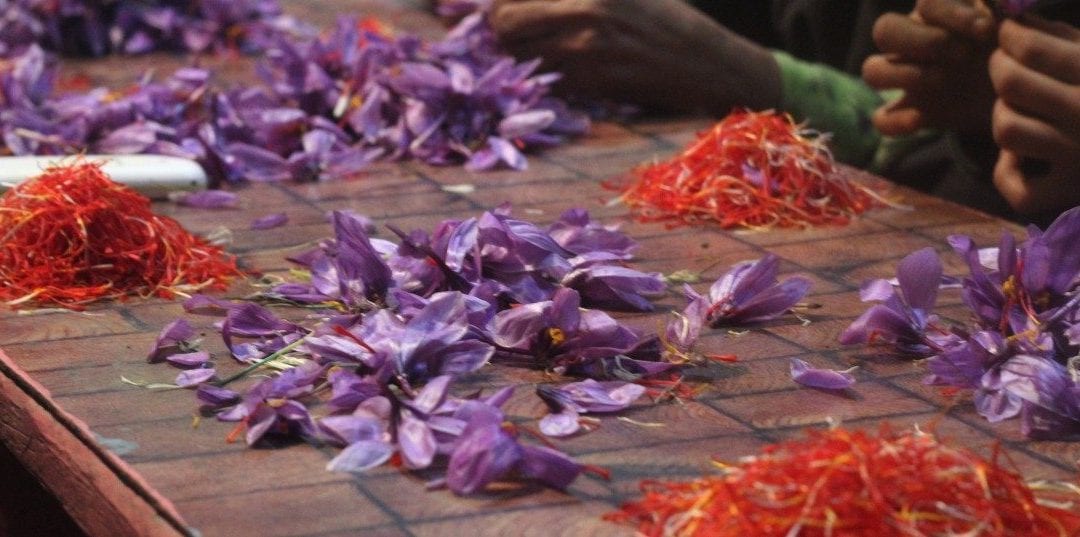A group of growers sitting together to collect saffron from flowers. Photo: Shahid Mushtaq Pampore, Kashmir: A few years back, saffron growers in the town used large winter blankets to collect the harvested flowers from the fields. During the nights, the precious stems would be separated. Now, to collect the flowers, a few baskets suffice. “Gone are the days when we used blankets, now not even tiny baskets get filled with such low produce,” rued one of the growers. Saffron production has been falling continuously over the years and if that trend continues, the townspeople will lose a crucial source of their livelihood and the Valley, one of its most precious spices for which it is known across the world. According to official figures, the annual production of saffron in the years 2017 and 2018 was 16.45 and 5.2 tonnes respectively and for 2019 the agricultural department estimates it to be 5.91 tonnes. Dr Amjad Hussaini, a SKAUST scientist said, “Drought like conditions, erratic rainfall, and no irrigation are the main reasons for the decline in saffron production,” and added that due to climate change, the pattern of rainfall had changed, which has had adverse effects on saffron. Members of a grower family collecting saffron flowers in basket from their land in Pamopre, Pulwama. Photo: Shahid Mushtaq. Many people affiliated with the sector have already switched to other sources of livelihood, abandoning their land. Despite timely rainfall this year, most of the saffron fields have sporadic flowers with large distances between the plants, indicative of the poor produce. Official claims of a bumper crop this year ring hollow. Even the much-touted National Saffron Mission has not helped in improving the production; instead, farmers have blamed it for exacerbating the situation. “Usually before the mission, we were sowing seeds with a 4-6 inch gap. When the government intervened in the sector they brought a new type of seed and told us to wash the seed in a chemical, which we had done never before,” said Suhail Sultan, a grower from Pampore and added that the chemical killed their seeds, even […]






